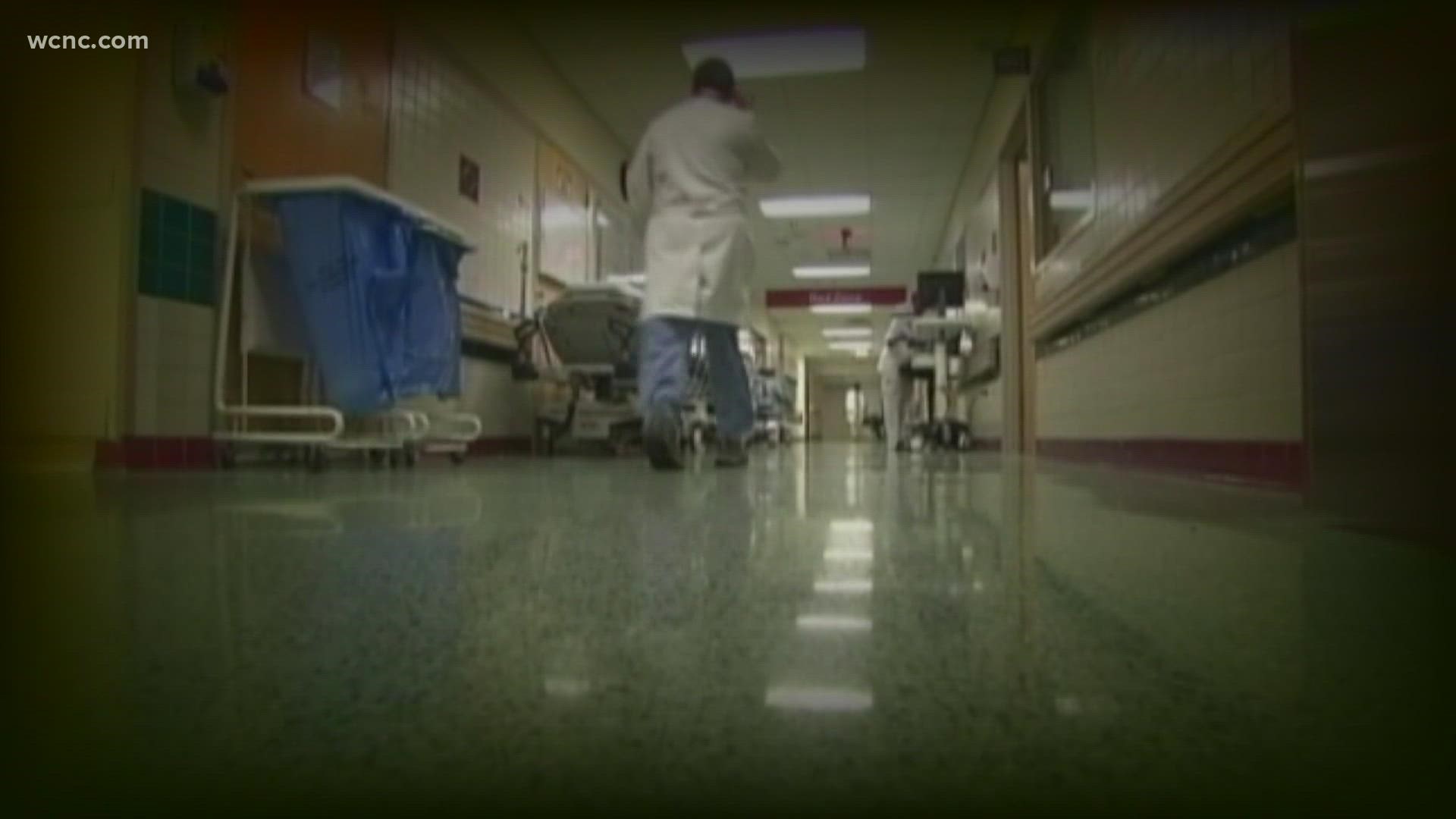CHARLOTTE, N.C. — A Charlotte-Mecklenburg Schools mom is sharing her story as a wake-up call to other parents wanting more access to their children's health care. The mother is questioning North Carolina state policy after her child, who is a minor, didn't consent to a medical test for marijuana in her system.
When LaShanda Morrison picked up her daughter from a Charlotte middle school, she said her 12-year-old child showed signs of being under the influence. Morrison said the school nurse believed her daughter was given candy possibly laced with marijuana.
The single mother drove to the emergency room at Novant Health Children's Hospital to get her child tested but her daughter didn't want to be tested.
As the child's guardian, Morrison tried to order the test but was denied the service.
"[The hospital workers] just said, 'By law, we are unable to do anything without [your daughter's] consent unless she was seven years of age or younger,' and at that age, I would be able to step in and take charge," Morrison explained to WCNC Charlotte.
WCNC reached out to Novant Health. A statement from a Novant Health spokesperson explained what Morrison encountered:
"Under North Carolina law, minors who consent to treatment for sensitive issues such as pregnancy, substance abuse, sexually transmitted diseases or behavioral health have the right to control who can receive this information. These laws are common across the United States and were created to ensure minor patients can receive the medical care that they may need without fear of parental punishment. In order to comply with these state laws, Novant Health restricts parental access to its patient portal MyChart beginning at age 12 and when a child reaches age 16, all parental access through MyChart ends. This policy is consistent with the practices of other healthcare organizations offering patient portals, although the ages may vary. Parents who wish to receive medical records of their minor child may do so through Novant Health’s health release of information department, however access to the sensitive information is still restricted unless consent is given."
RELATED: Minors in NC require parental consent to get COVID-19 vaccine under emergency authorization
WCNC Charlotte spoke to an attorney to better understand the law.
"Everyone can understand why a parent might say, 'Hey, this is my minor child that I am responsible for. Why don’t I have a right to know everything that a doctor has done with my child?' And that’s perfectly understandable," Gary Mauney, an attorney at Mauney PLLC, said. "What’s happened is, politicians, policymakers have made a decision to weigh and balance these interests."
Mauney said the law is intended to allow a child to seek out medical treatment unhindered by the fear of how a parent may or may respond to the results.
North Carolina's general statutes on the state's minor consent laws are governed by the Code of Federal Regulations and HIPAA, Mauney explained.
For Morrison, her experience was similar.
"I honestly think [she denied the test] because she was scared," Morrison continued reflecting on the experience with her daughter. "And knowing the mother that I am and set certain expectations, I just feel like she already knew she had let me down with what already took place. I felt like she was already in fear."
Jean Tillman, a licensed marriage and family therapist at Daymark Recovery Services, said, it's important for parents to make the child feel safe.
"I think the fear is, 'What’s mom going to say? Am I in trouble?' Tillman said while providing parents with a suggestion on what to say when presented with these situations. "'No, you’re not in trouble. This is just for us to make sure that we are able to make the best decisions for you, moving forward. Trust. I still love you.'"
According to Guttmacher Institute, North Carolina's law was enacted in 1971 . In 1977, the law was rewritten to apply to pregnancy, STIs, mental health, and some cases of substance abuse.
In South Carolina, a law that dates back to at least 1976 says minors 16 and older can consent to health care services.
Contact Jane Monreal at jmonreal@wcnc.com and follow him on Facebook, Twitter and Instagram.

